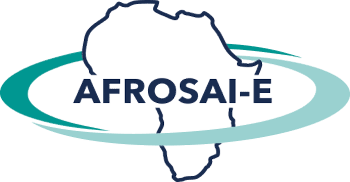
Takeaways from the 2024 Mining Indaba
Since its inception in 1994, Mining Indaba has grown from a small conference to one of the most highly anticipated events in the industry, welcoming mining professionals from all over the world. The event is dedicated to the successful capitalisation and development of mining interests in Africa, with a unique and widening perspective of the African mining industry. From connecting mining companies with leading investors to providing a platform for meaningful industry discussions, Mining Indaba supports long-term economic and sustainable growth across the continent.
Mining Indaba is a platform for stakeholders to discuss critical challenges and opportunities, paving the way for collaborations and investments that unlock Africa’s mining potential. AFROSAI-E attends the Mining Indaba annually to source information and keep up to date with the latest developments in the industry to inform our Extractive Industries’ capacity-building interventions across the region. These include crafting themes and discussion points for the Annual Extractive Industries and risk assessment workshops.
The 2024 Mining Indaba was held from 5 to 8 February 2024 in Cape Town, South Africa, with the theme, Embracing the power of positive disruption: A bold new future for African mining. Over 8100 participants attended the Indaba, including the Presidents of South Africa and Zambia and the Prime Minister of the Democratic Republic of Congo.
In his keynote during the opening ceremony, Frans Baleni, the Executive Advisory Board Chairman of Mining Indaba, mentioned challenges critical to the success of the mining sector in Africa. The deteriorating infrastructure, the slow process of obtaining environmental approvals, and community engagements were crucial issues to be addressed. Mining companies identified that there are too many standards in the mining sector to report on.
The Disruptive Discussions Launch paved the way for a daring new era in African mining. Leading and major mining companies discussed their strategies for introducing positive transformation and disruptions to the industry, the nation, and the African continent. Key discussions focused on collaboration between stakeholders, governments, mining companies, and communities to ensure that the minerals within different communities benefit the people and improve living standards. This was a key highlight of the event’s theme, influencing discussions on positive disruption. Hon. Gwede Mantashe, Minister of Mineral Resources and Energy South Africa, called for a mining sector that prioritises the health and well-being of its workers and communities. The Minister also mentioned the importance of the new Cadastral licensing system, which will ensure transparent mining licenses.
Sessions on government issues involved country case studies. They focused on the need to do more on exploration, retaining value through beneficiation (value adding – more processing and production in-country, local content), building the necessary competencies and infrastructure, the imperative of regional collaboration, and the need for stability.
In a mining-driven economy, democracy, good governance, and the rule of law support the continent’s development and enable more responsible and sustainable mining. Greenwashing was mentioned as the most significant risk, and deepfake misinformation was mentioned as secondary. Half of the mines are on indigenous people’s land, and community involvement is necessary. Due to the shift to electrification, we will likely use more resources in the next 35 years. Waste can also become a resource. As a principle, a country should use all deposits, not only first-class ones. In this debate, it was emphasised that what was previously extracted in 30 years is now extracted in 10 years. There are also challenges related to recycling as individuals try to extract material from recycled materials through harmful methods that harm them and the environment. The private sector is encouraged to receive and process the products to protect the environment.
We believe that this is a good step towards transparency and accountability. The rule of law, which informs different countries’ legal frameworks, is a critical issue in the AFROSAI-E value chain, as with most of our risk assessments. State policies and laws ensure that countries are not short-changed when entering contracts (leading to a transparent and accountable government).
The key take-away messages from our regional perspective were as follows:
- Harmonising all laws and regulations relating to mining to remove inconsistencies that cause delays in the mining sector.
- Strengthen democracy and good governance through policy development.
- Extractive transparency to ensure the security and sustainability of the mining sector.
- Strengthening collaboration between partners to ensure that all parties benefit from the mining sector, drive economic growth and development, and ensure inclusivity in the mining sector.
ALTERNATIVE MINING INDABA
The 2024 Alternative Mining Indaba gathered thought leaders, activists, policymakers, industry experts, and communities to talk about how to make mining fairer and more inclusive. It focused on giving more benefits to communities and ensuring women’s issues were part of the discussion. This meeting has been happening for 14 years, and it always pushes for better management of resources so that people benefit more. In 2024, it took place from 5 to 8 February in Cape Town, South Africa. The central theme was putting communities first in the transition to cleaner energy sources, with a particular emphasis on including women. The aim was to involve African communities in discussions about the future of mining and energy. The Alternative Mining Indaba isn’t just a conference; it’s a gathering of African voices demanding a change from how things are currently done in the mining industry.
The Alternative Mining Indaba aims to be a forum for innovation and a launchpad for collective action. AFROSAI-E annually attends to source and supplement the insights gained from the Mining Indaba and stay updated with the latest developments in the mining industry. We committed ourselves to action and more solution-oriented strategies to transform the structural inequalities characterising the extractive industry sector on the African continent. The AMI called for resolute action against the structural gender imbalances and the skewed gender relations inherent in mining economies.
The message has been clear: mining companies need to be more inclusive, meaning they should help the communities where they operate to improve their conditions. Activists and community leaders have been vocal about the environmental damage caused by mining. They’re calling on governments to create policies that prevent exploitation and ensure communities benefit from mining for their development.
AFROSAI-E was asked to speak on the first and second days of the conference about “The New Age of Critical Minerals and Unveiling Shadows: Addressing Illicit Financial Flows Risks with Beneficial Ownership Disclosure in Africa’s Mining Sector”. These sessions show that AFROSAI-E is recognised for its important regional work in the extractive industries. It highlights our role in ensuring the mining sector benefits the people and the economy.
The key take-away messages from our regional perspective were as follows:
- Strengthening solidarity: promoting a people-centred and environmentally sustainable approach to a just energy transition.
- Fostering inclusive dialogue: promoting a safe and inclusive mining sector for all parties (stakeholders, stakeholders, mining companies, and communities).
- Development of a robust exploration regulatory framework that is inclusive and addresses the needs of all stakeholders.
- Identifying strategies to ensure the mining sector benefits local economies and contributes to broader economic growth.
The two Indabas are vital and influential in our Extractive Industries’ capacity-building interventions across the region. They enable us to craft themes and discussion points for the Extractive Industries Annual and risk assessment workshops from an insightful and informed perspective.
